- Home
- P. C. Cast
Neferet's Curse Page 2
Neferet's Curse Read online
Page 2
Camille was my best friend. She and I were close in age, she being only six months the younger. Camille talked a lot, but not in the cruel, gossipy way of her mother. Because of the closeness of our parents, Camille and I had grown up together, which had made us more like sisters than best friends.
“Oh, my poor, sad Emily! How thin and wan you look,” Camille had said as she rushed into Mother’s parlor and embraced me.
“Well, of course she looks thin and wan!” Mrs. Elcott had moved her daughter aside and stiffly taken my hands in hers before she’d even shed her white leather gloves. Remembering her touch, I realize now that she’d felt cold and quite reptilian. “Emily has lost her mother, Camille. Think of how wretched your life would be had you lost me. I would expect you to look just as terrible as poor Emily. I’m sure dear Alice is looking down on her daughter in understanding and appreciation.”
Not expecting her to speak so freely of Mother’s death, I felt a little shock at Mrs. Elcott’s words. I tried to catch Camille’s gaze as we moved apart, settling ourselves on the divan and matching chairs. I’d wanted to share with her our old look, one that said we agreed how sometimes our mothers could say terribly embarrassing things, but Camille seemed to be looking everywhere but at me.
“Yes, Mother, of course. I apologize,” was all she muttered contritely.
Trying to feel my way through this new social world that suddenly was very foreign, I breathed a long breath of relief when the housemaid bustled in with tea and cakes. I poured. Mrs. Elcott and Camille studied me.
“You really are quite thin,” Camille said finally.
“I will be better soon,” I’d said, sending her a reassuring smile. “At first I found it difficult to do anything except sleep, but Father has insisted that I get well. He reminded me that I am now the Lady of Wheiler House.”
Camille’s gaze had flicked quickly to her mother’s. I could not read the hard look in Mrs. Elcott’s eyes, but it was enough to silence her daughter.
“That is quite brave of you, Emily,” Mrs. Elcott spoke into the silence. “I am sure you are a great comfort to your father.”
“We tried to see you for two whole months, but you wouldn’t receive us, not even during the holidays. It was like you’d disappeared!” Camille blurted as I poured her tea. “I thought you’d died, too.”
“I’m sorry.” At first, her words had made me contrite. “I didn’t mean to upset you.”
“Of course you didn’t,” Mrs. Elcott had said, frowning at her daughter. “Camille, Emily wasn’t disappearing—she was mourning.”
“I still am,” I’d said softly. Camille heard me and nodded, wiping her eyes, but her mother had been too busy helping herself to the iced cakes to pay either of us much attention.
There was a silence that seemed very long while we sipped our tea and I pushed the small, white cake around my plate, and then, in a high, excited voice, Mrs. Elcott asked, “Emily, were you really there? In the room with her when Alice died?”
I’d looked to Camille, wishing for an instant that she could silence her mother, but of course that had been a foolish, futile wish. My friend’s face had mirrored my own discomfort, though she did not appear shocked at her mother’s disregard for propriety and privacy. I realized then that Camille had known her mother was going to question me thus. I drew a deep, fortifying breath and answered truthfully, though hesitantly, “Yes. I was there.”
“It must have been quite ghastly,” Camille said quickly.
“Yes,” I said. I’d placed my teacup carefully in its saucer before either of them could see that my hand trembled.
“I expect there had been a lot of blood,” Mrs. Elcott said, nodding slowly as if in pre-agreement with my response.
“There was.” I’d clasped my hands tightly together in my lap.
“When we heard you were in the room when she died, we were all so very sorry for you,” Camille had said softly, hesitantly.
Shocked silent, I could almost hear Mother’s voice saying sharply, Servants and their gossip! I was mortified that Mother’s death had been the topic of gossip, but I’d also longed to talk to Camille, to tell her how frightened I’d been. But before I could collect myself enough to speak, her mother’s sharp voice had intruded.
“Indeed, it was all anyone could talk about for weeks and weeks. Your poor mother would have been appalled. Bad enough that you missed the Christmas Ball, but for the topic of conversation during the evening to have been your witnessing her gruesome death…” Mrs. Elcott shuddered. “Alice would have thought it as dreadful as it was.”
My cheeks had flamed hot. I had utterly forgotten about the Christmas Ball, and my sixteenth birthday. Both had taken place in December, when sleep had been cloaking me from life.
“Everyone was talking about me at the ball?” I’d wanted to run back to my room and never emerge.
Camille’s words came fast, and she had made a vague movement, as if she understood how difficult the conversation had become for me and was trying to brush away the subject. “Nancy, Evelyn, and Elizabeth were worried about you. We were all worried about you—we still are.”
“You left out one person who seemed especially concerned: Arthur Simpton. Remember how you said he could talk of nothing except how horrible it all must have been for Emily, even while he was waltzing with you.” Mrs. Elcott hadn’t sounded worried at all. She’d sounded angry.
I’d blinked and felt as if I was swimming up through deep, murky waters. “Arthur Simpton? He was talking about me?”
“Yes, while he danced with Camille.” Mrs. Elcott’s tone had been hard with annoyance, and I’d suddenly understood why—Arthur Simpton was the eldest son of a wealthy railroad family that had recently relocated from New York City to Chicago, because of close business ties with Mr. Pullman. Besides being rich, suitably bred, and eligible, he was also extremely handsome. Camille and I had whispered about him as his family moved into their South Prairie Avenue mansion and we’d watched him riding his bicycle up and down the street. Arthur had been the single driving force behind our desire to obtain our own bicycles and to join the Hermes Bicycle Club. He had also been one of the key reasons both of our mothers had agreed to pressure our fathers into allowing us to do so, even though Camille had told me she’d heard her father informing her mother that bicycle bloomers could lead a young woman into “a life of pernicious lasciviousness.” I remembered it clearly because Camille had made me giggle as she’d done an excellent impression of her father. As I’d laughed she’d also said she’d be willing to enter a life of pernicious lasciviousness if it meant entering it with Arthur Simpton.
I hadn’t said anything then. It hadn’t seemed necessary. Arthur had, quite often, looked our way, but the both of us knew it was my eyes he met when he tipped his hat, and my name he called a “Bright, good morning, Miss Emily” to.
I shook my head, feeling woozy and slow. I turned to Camille. “Arthur Simpton? He danced with you?”
“Most of the evening,” Mrs. Elcott had spoken for her daughter, nodding her head so quickly the feathers on her hat fluttered with disturbing violence, making her look even more henlike. “In truth Camille and I believe Arthur Simpton will approach Mr. Elcott soon and ask permission to formally court her.”
My stomach had felt terrible and hollow. How could he court Camille? Little over two months ago he hadn’t so much as spoken her name to wish her a good morning. Could such a short amount of time change him so drastically?
Yes, I’d decided silently and quickly. Yes, a short amount of time could change anyone drastically. It had certainly changed me.
I’d opened my mouth to speak, though I was still not sure what it was I was going to say, and Father had burst into the room, looking frazzled and wearing no jacket.
“Ah, Emily, here you are.” He’d nodded absently to Mrs. Elcott and Camille, saying, “Good afternoon, ladies.” Then he’d turned his full attention to me. “Emily, which waistcoat should I wear this evening? The
black or the burgundy? The board is meeting again with those infernal architects, and I need to use a firm hand. The right tone must be set. Their budget is out of control and time is short. The fair must open May the first. They are simply not prepared. They climb too steep—too steep!”
I blinked, trying to focus on the bizarre scene. Arthur Simpton’s name linked with Camille’s had still been almost tangible in the air around us while Father stood there, his dress shirt untucked and only partially buttoned, a waistcoat in each hand, waving them about as if they were flags unfurled. Mrs. Elcott and Camille were staring at him as if he had lost his mind.
I was suddenly angry, and I’d automatically come to Father’s defense.
“Mother always said the black is more formal, but the burgundy is richer. Wear the burgundy, Father. The architects should see you as rich enough to control the money and, therefore, their futures.” I’d tried my best to pitch my voice softly to mimic my mother’s soothing tone.
Father had nodded. “Yes, yes, it should be as your mother said. The richer is the better. Yes, well done.” He’d bowed briskly to the other two women, wishing them a good day, and then he hurried out. Before the door closed, I could see his valet, Carson, joining him in the hallway and taking the discarded black waistcoat that was tossed his way.
When I turned back to the Elcott women, I lifted my chin. “As you can see, Father has been depending upon me.”
Mrs. Elcott had lifted a brow and sniffed. “I do see. Your father is a fortunate man, and the man to whom he eventually marries you will be fortunate, as well, to have such a well-trained wife.” Her gaze went to her daughter and then she smiled silkily as she’d continued, “Though I imagine your father won’t want to part with you for several years, so marriage is out of the question for your foreseeable future.”
“Marriage?” A jolt had gone through me at the word. Camille and I had talked about it, of course, but we had mostly whispered about the courting, the betrothal, the sumptuous wedding … and not the actual marriage itself. Mother’s voice had suddenly echoed from my memory: Emily, you will not leave me … You should know what it is to be a wife and mother. You should not go blindly into it as did I. I’d felt a shudder of panic and added, “Oh, I couldn’t possibly think about marriage now!”
“Of course you can’t think about marriage right now! Neither of us should—not really. We’re sixteen. That’s entirely too young. Isn’t that what you’ve always said, Mother?” Camille had sounded strained, almost frightened.
“Thinking about a thing and preparing for a thing are not one and the same, Camille. Opportunity should not be overlooked. And that is what I have always said.” Mrs. Elcott had peered down her long nose at me while she spoke with disdain.
“Well, I think it is a good thing that I am devoted to my father,” I’d responded, feeling horribly uncomfortable and unsure of what else to say.
“Oh, we are all in agreement about that!” Mrs. Elcott had said.
They hadn’t stayed long after Father’s appearance. Mrs. Elcott had rushed Camille off, not giving us even one small chance to speak to each other alone. It was as if she’d gotten what she’d come for and left satisfied.
And me? What had I gotten?
I’d hoped for validation. Even though the affection of the handsome young Arthur Simpton had turned from me to my friend, I’d believed it was my duty as a daughter to care for my father. I’d felt that Camille and her mother would see that I was doing my best to carry on after Mother—that in a little over two months I’d grown from girl to woman. I’d thought that somehow I could make the loss of Mother bearable.
But in the long, silent hours after their visit, my mind had begun to replay the events and to view their facets differently, and on retrospection I feel my second view to be more valid than my first. Mrs. Elcott had wanted substantiation of the gossip; she’d gotten her wish. She had also wanted to make it very clear that Arthur Simpton would not now be a part of my future and that no man—other than Father—would be a part of my foreseeable future. She had accomplished both tasks.
I’d sat up that night and waited for Father’s return. Even now, as I record what happened next, I cannot fault myself for my actions. As the Lady of Wheiler Mansion, it was my duty to see Father cared for—to be there with a tea or possibly a brandy for him—as I’d imagined Mother had often done upon his late return from work dinners. I had expected Father to be tired. I had expected him to be himself: aloof, gruff, and overbearing, yet polite and appreciative of my fidelity.
I had not expected him to be drunk.
I’d seen Father filled with wine. I had glimpsed him red nosed and effusive in his praise of Mother’s beauty as they went out in the evenings, dressed formally and trailing the scent of lavender, lemon, and cabernet. I cannot remember ever seeing them upon their return. Had I not been asleep in my bed, I would have been brushing my hair or embroidering the fine details of violets at the bodice of my newest day dress.
I realize now that Father and Mother had been to me like distant moons circling the self-absorption of my youth.
That night Father evolved from moon to burning sun.
He’d lurched inside the foyer, calling loudly for his valet, Carson. I’d been in Mother’s parlor, trying to keep my heavy eyes open by rereading Emily Brontë’s gothic novel, Wuthering Heights. At the sound of his voice, I’d put the book aside and hurried to him. His scent came to me before I saw him. I remember that I pressed a hand against my nose, flustered at the rankness of brandy, sweat, and cigars. As I write this, I am afraid that those three odors will for me, forever, be the scent of man, and the scent of nightmares.
I’d rushed to his side, pursing my lips at the thick reek of his breath, thinking that he must not be well.
“Father, are you ill? Shall I call the physician?”
“Physician? No, no, no! Right as rain. I’m right as rain. Just need some help getting to Alice’s room. Not as young as I used to be—not at all. But I can still do my duty. I’ll get her with a son yet!” Father swayed as he talked, and he’d put a heavy hand on my shoulder to steady himself.
I staggered under his weight, guiding him to the wide stairway, so worried that he was ill that I hardly comprehended what he was saying. “I’m here. I’ll help you,” was what I whispered over and over to him. He’d leaned even more heavily on me as we climbed clumsily up to the second floor and finally stopped outside his bedchamber. He’d shaken his head back and forth, mumbling, “This isn’t her room.”
“It is your bedchamber,” I’d said, wishing his valet or anyone would appear.
He’d squinted at me, as if he were having trouble focusing. Then his slack, drunken expression had changed. “Alice? So, you are willing to break your frigid rules and join my bed tonight.”
His hand had been hot and damp on the shoulder of my fine linen nightgown.
“Father, it’s me, Emily.”
“Father?” He’d blinked and brought his face down closer to mine. His breath had almost made me retch. “Emily. Indeed. It is you. Yes, you. I know you now. You cannot be Alice, she is dead.” His face still so very close to mine, he added, “You’re too thin, but you do have her eyes.” He’d reached out then and lifted a strand of the thick, auburn hair that had escaped my nightcap. “And her hair. You have her hair.” He’d rubbed my hair between his fingers and slurred, “You must eat more—shouldn’t be so thin.” Then, bellowing for Carson to attend him, Father let loose my hair, shoved me aside, and staggered into his room.
I should have retreated to my own bed then, but a terrible unease had come over me and I ran, allowing my feet to carry me where they willed. When I finally halted, gasping to catch my breath, I found my blind flight had taken me into the gardens that stretched for more than five acres in the rear of our house. There I collapsed on a stone bench that sat, concealed, under the curtain of a massive willow tree, and put my face in my hands and wept.
Then something magical happened. The warm nig
ht breeze lifted the willow branches and the clouds blew away, exposing the moon. Though only a slim crescent, it was almost silver in its brilliance, and it seemed to beam metallic light into the garden, setting aglow the huge white marble fountain that was its central feature. Within the fountain, spewing water from his open mouth, was the Greek god Zeus, in the form of the bull that had tricked and then abducted the maiden, Europa. The fountain had been a wedding gift from Father to Mother, and had been at the heart of Mother’s extensive garden since my earliest memories.
Perhaps it was because the fountain was Mother’s, or perhaps it was from envy for the musicality of the bubbling water, but my tears stopped as I studied it. Eventually, my heartbeat slowed and my breathing became normal. And, even when the moon became cloaked by clouds once again, I remained beneath the tree, listening to the water and allowing it, as well as the concealing willow shadows, to soothe me until I knew I could sleep. Then I slowly made my way up to my third-floor bedchamber. That night I dreamed I was Europa and the white bull was carrying me away to a beautiful meadow where no one ever died and where I was, eternally, young and carefree.
April 15th, 1893
Emily Wheiler’s Journal

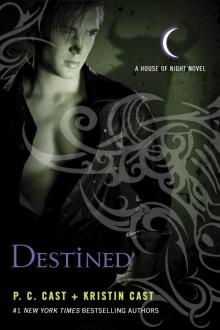 Destined
Destined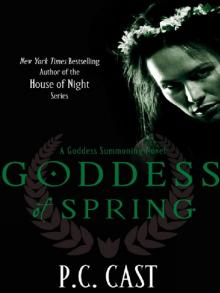 Goddess of Spring
Goddess of Spring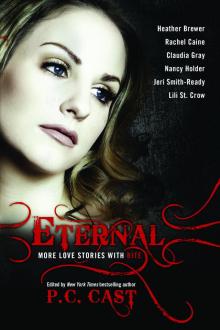 Eternal: More Love Stories with Bite
Eternal: More Love Stories with Bite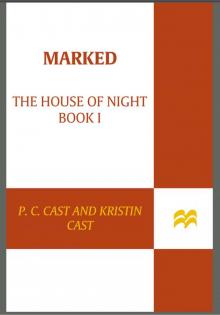 Marked
Marked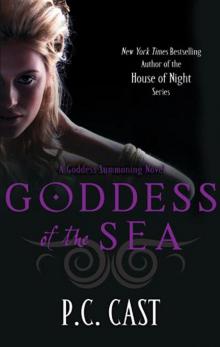 Goddess of the Sea
Goddess of the Sea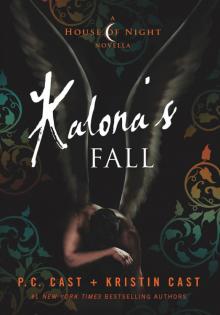 Kalona's Fall
Kalona's Fall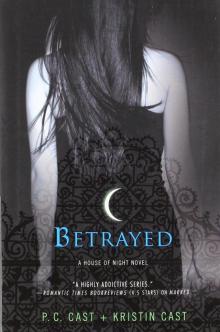 Betrayed
Betrayed Elphames Choice
Elphames Choice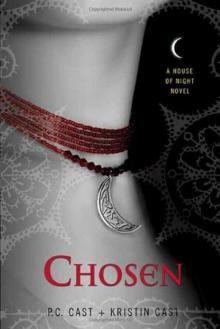 Chosen
Chosen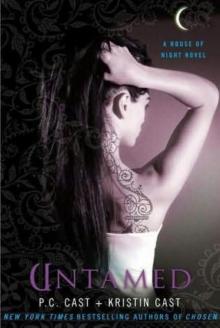 Untamed
Untamed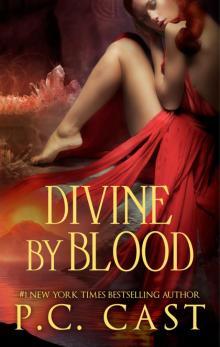 Divine by Blood
Divine by Blood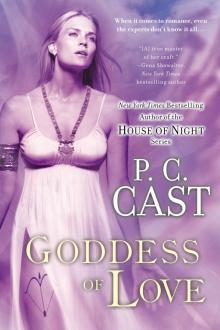 Goddess of Love
Goddess of Love Hidden
Hidden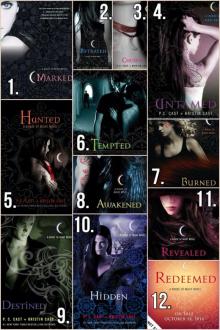 Burned
Burned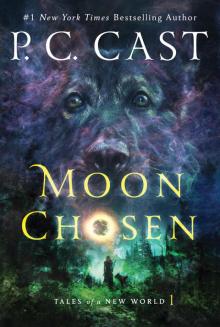 Moon Chosen
Moon Chosen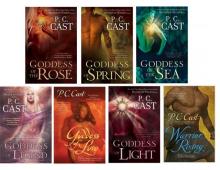 Goddess of the Rose
Goddess of the Rose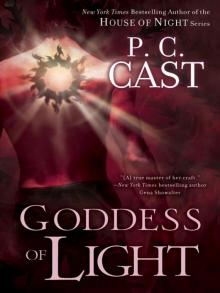 Goddess of Light
Goddess of Light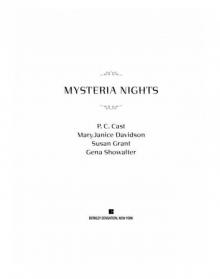 Mysteria Nights
Mysteria Nights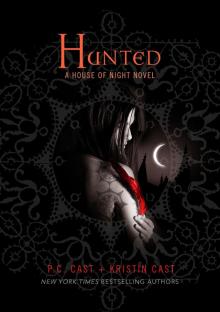 Hunted
Hunted Sun Warrior
Sun Warrior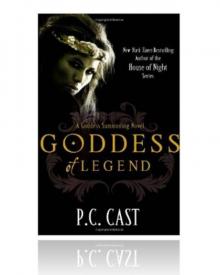 Goddess of Legend
Goddess of Legend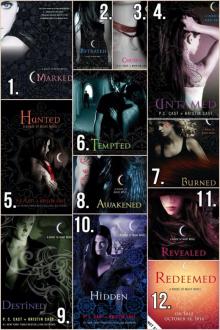 Tempted
Tempted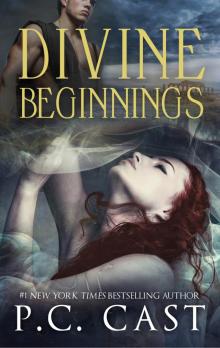 Divine Beginnings
Divine Beginnings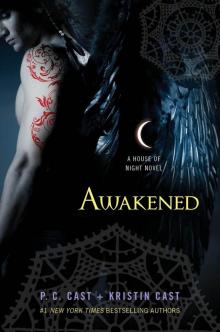 Awakened
Awakened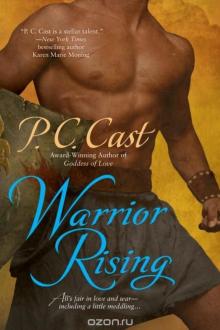 Warrior Rising
Warrior Rising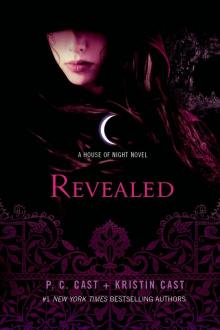 Revealed
Revealed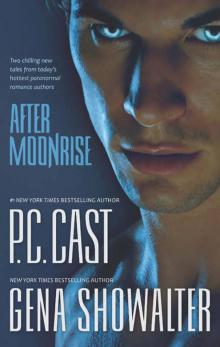 After Moonrise
After Moonrise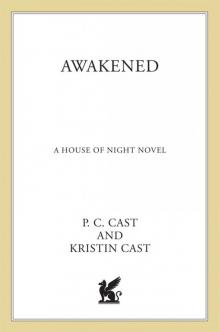 Awakened: A House of Night Novel
Awakened: A House of Night Novel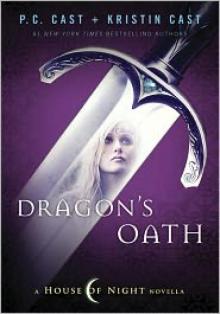 Dragon's Oath
Dragon's Oath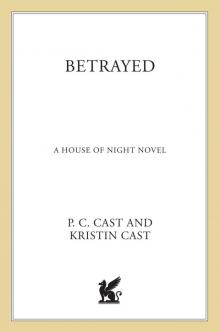 Betrayed (House of Night, Book 2): A House of Night Novel
Betrayed (House of Night, Book 2): A House of Night Novel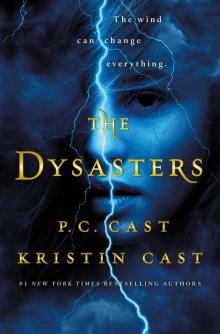 The Dysasters
The Dysasters Found
Found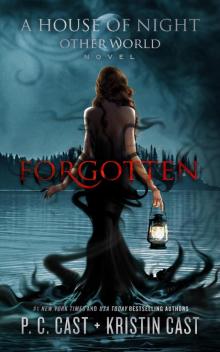 Forgotten
Forgotten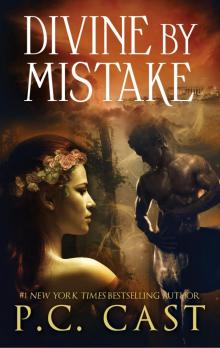 Divine by Mistake
Divine by Mistake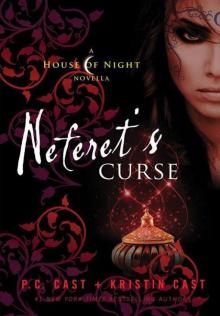 Neferet's Curse
Neferet's Curse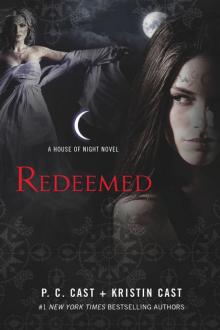 Redeemed: A House of Night Novel
Redeemed: A House of Night Novel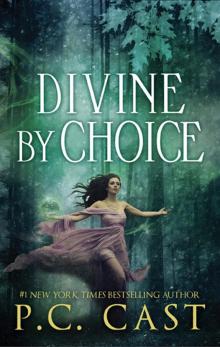 Divine by Choice
Divine by Choice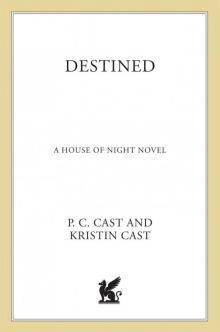 Destined (House of Night Book 9)
Destined (House of Night Book 9)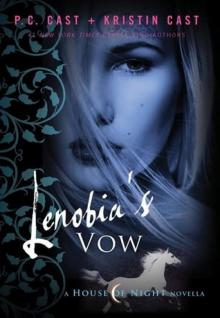 Lenobia's Vow
Lenobia's Vow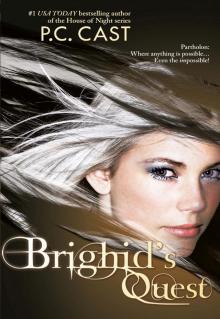 Brighid's Quest
Brighid's Quest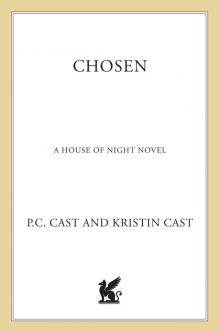 Chosen (House of Night, Book 3): A House of Night Novel
Chosen (House of Night, Book 3): A House of Night Novel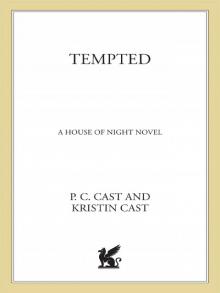 Tempted: A House of Night Novel
Tempted: A House of Night Novel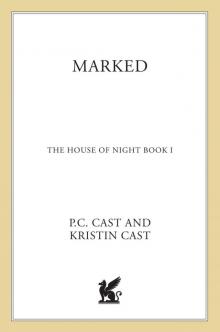 Marked (House of Night, Book 1): A House of Night Novel
Marked (House of Night, Book 1): A House of Night Novel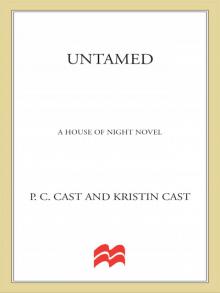 Untamed (House of Night, Book 4): A House of Night Novel
Untamed (House of Night, Book 4): A House of Night Novel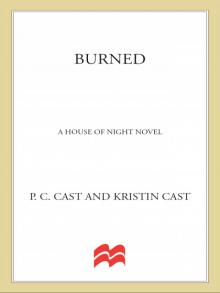 Burned: A House of Night Novel
Burned: A House of Night Novel Lost
Lost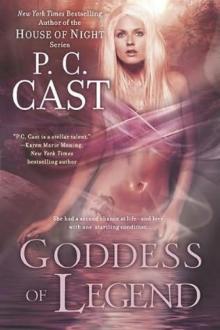 Goddess of Legend gs-7
Goddess of Legend gs-7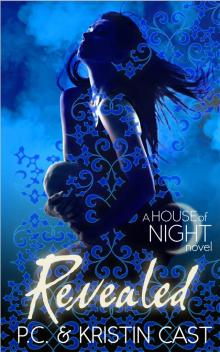 Revealed hon-11
Revealed hon-11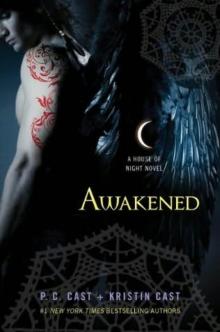 Awakened hon-8
Awakened hon-8 Tempted hon-6
Tempted hon-6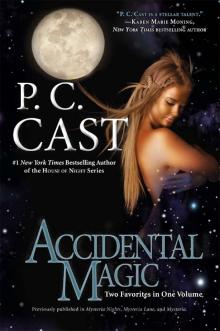 Accidental Magic
Accidental Magic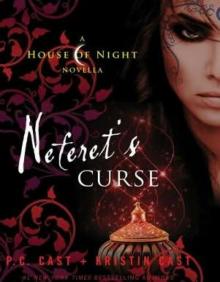 Neferet's Curse (house of night)
Neferet's Curse (house of night)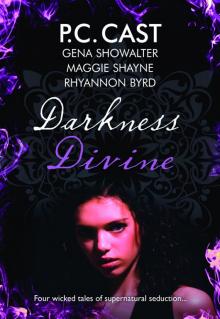 Darkness Divine
Darkness Divine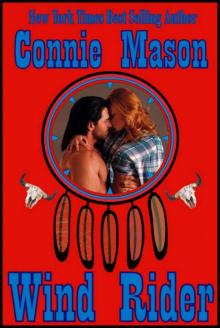 Wind Rider
Wind Rider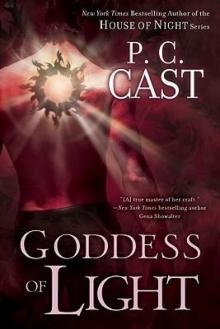 Goddess of Light gs-3
Goddess of Light gs-3 Kalona’s Fall
Kalona’s Fall Hunted hon-5
Hunted hon-5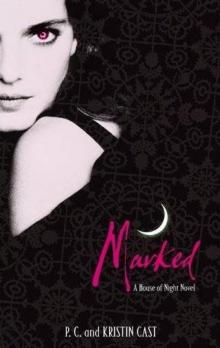 Marked hon-1
Marked hon-1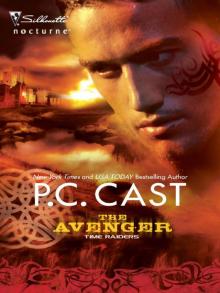 Time Raiders: The Avenger
Time Raiders: The Avenger Goddess of the Sea gs-1
Goddess of the Sea gs-1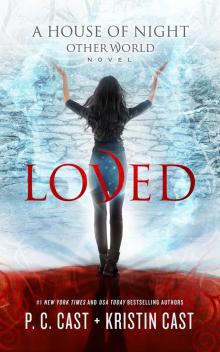 Loved
Loved Untamed hon-4
Untamed hon-4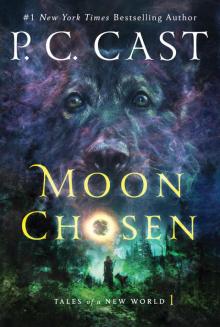 Moon Chosen--Tales of a New World
Moon Chosen--Tales of a New World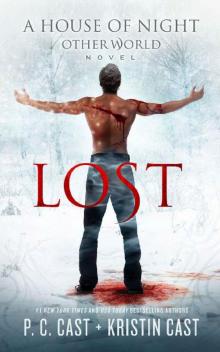 Lost (The House of Night Other World Series)
Lost (The House of Night Other World Series)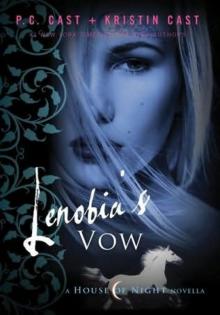 Lenobia's Vow (house of night)
Lenobia's Vow (house of night)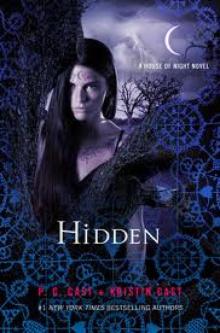 Hidden hon-10
Hidden hon-10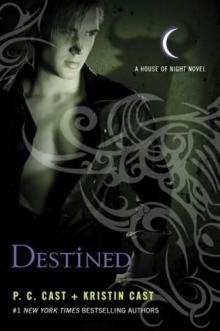 Destined hon-9
Destined hon-9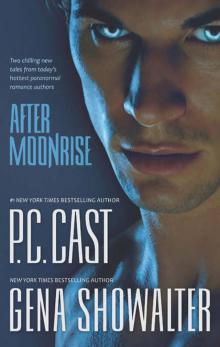 After Moonrise: PossessedHaunted
After Moonrise: PossessedHaunted